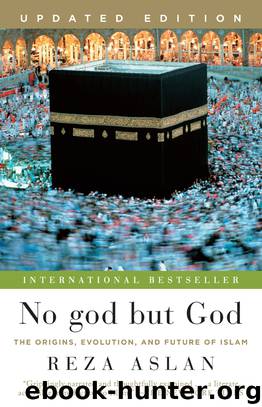No God But God by Reza Aslan

Author:Reza Aslan [Aslan, Reza]
Language: eng
Format: epub
ISBN: 978-0-679-64377-7
Publisher: Random House Publishing Group
Published: 2011-08-29T16:00:00+00:00
The debate between the Rationalist and the Traditionalist Ulama continued for a few hundred years, with each school alternating in influence, until the end of the thirteenth century, when, partly in response to al-Ma’mun’s disastrous Inquisition, the Traditionalist position became the dominant position in Sunni Islam. Most Rationalists were branded as heretics, and their theories gradually lost influence in all the major schools of law and theology with the exception of the Shi‘ite schools (discussed in the following chapter). And while the debate over the nature of the Quran continues to this day, the influence of the Traditionalist interpretation has led to a number of extraordinary theological and legal developments in Islam.
For instance, belief in the eternal, uncreated word of God has led to the widespread conviction among Muslims that the Quran cannot be translated from its original language. A translation into any other language would remove the direct speech of God, rendering it an interpretation of the Quran, not the Quran itself. As Islam spread from the Arabian Peninsula to the rest of the world, every convert—whether Arab, Persian, European, African, or Indian—had to learn the Arabic language in order to read Islam’s sacred text. Even today, Muslims of every culture and ethnicity must read the Quran in Arabic, whether they understand it or not. The message of the Quran is vital to living a proper life as a Muslim, but it is the words themselves—the actual speech of the one and only God—that possess a spiritual power known as baraka.
While baraka can be experienced in a number of ways, it is most vividly encountered through Islam’s unrivaled tradition of calligraphy. Partly because of the primacy of the word in Islam, and partly because of the religion’s aversion to iconolatry and thus the figural arts, calligraphy has become the supreme artistic expression in the Muslim world. Yet Islamic calligraphy is more than just an art form; it is the visual representation of the eternal Quran, the symbol of God’s living presence on earth.
The words of the Quran are inscribed on mosques, tombs, and prayer rugs in order to sanctify them. They are emblazoned on common objects like cups, bowls, and lamps, so that when one eats from a plate adorned with God’s Speech, or lights a lamp with a Quranic verse etched into it, one is able to consume baraka, to be illuminated by it. In the same way that pre-Islamic poetry was thought to convey divine authority, so do the words of the Quran act as a talisman that transmits divine power. It is no wonder, then, that after the Ka‘ba had been cleansed and rededicated, the pagan odes that had hung from the sanctuary were torn down and replaced by verses from the Quran, which still form a golden band around the sacred shrine.
Another way in which Muslims experience baraka is through the art, or rather the science, of Quranic recitation. As William Graham has observed, the early Muslim community undoubtedly understood the Quran to be an oral scripture that was intended to be spoken aloud in a community, not read quietly to oneself.
Download
This site does not store any files on its server. We only index and link to content provided by other sites. Please contact the content providers to delete copyright contents if any and email us, we'll remove relevant links or contents immediately.
| Buddhism | Christianity |
| Ethnic & Tribal | General |
| Hinduism | Islam |
| Judaism | New Age, Mythology & Occult |
| Religion, Politics & State |
Cecilia; Or, Memoirs of an Heiress — Volume 1 by Fanny Burney(31333)
Cecilia; Or, Memoirs of an Heiress — Volume 3 by Fanny Burney(30934)
Cecilia; Or, Memoirs of an Heiress — Volume 2 by Fanny Burney(30889)
The Secret History by Donna Tartt(16627)
Sapiens: A Brief History of Humankind by Yuval Noah Harari(13054)
Leonardo da Vinci by Walter Isaacson(11904)
The Radium Girls by Kate Moore(10908)
Sapiens by Yuval Noah Harari(4538)
The Wind in My Hair by Masih Alinejad(4424)
How Democracies Die by Steven Levitsky & Daniel Ziblatt(4399)
Homo Deus: A Brief History of Tomorrow by Yuval Noah Harari(4280)
Endurance: Shackleton's Incredible Voyage by Alfred Lansing(3845)
The Silk Roads by Peter Frankopan(3762)
Man's Search for Meaning by Viktor Frankl(3635)
Millionaire: The Philanderer, Gambler, and Duelist Who Invented Modern Finance by Janet Gleeson(3569)
The Rape of Nanking by Iris Chang(3516)
Hitler in Los Angeles by Steven J. Ross(3438)
The Motorcycle Diaries by Ernesto Che Guevara(3333)
Joan of Arc by Mary Gordon(3259)
